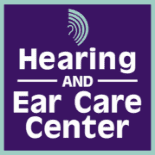Inner Ear Injuries, Balance, and Hearing Loss
Have you recently developed vertigo, experienced dizzy spells, or had trouble walking? These are all possible signs of a balance disorder, and they can indicate inner ear damage. If so, you could be at risk for hearing loss as well. Learn the signs and discover where to turn for treatment to keep hearing clearly and feeling your best.
Identifying Inner Ear Injuries
Your inner ear is a complex part of the auditory and vestibular systems, the hearing and balance centers of the body. In fact, the labyrinth structure within the inner ear is the last place external inputs like sound waves and motion changes travel before reaching the brain. If you have an inner ear injury, you likely have damage to the labyrinth that will impair your body’s ability to communicate those signals to the brain. You may experience hearing loss, balance problems, or both.
Symptoms
We can help you determine if you have inner ear damage. Whether your symptoms are hearing or balance-related, make an appointment if you experience the following:
Symptoms of Hearing Impairment
- Muffled sound
- Ringing in ears (tinnitus)
- Trouble following conversations
- Difficulty hearing at standard volume
- Asking people to repeat themselves
- Earache
Symptoms of Balance Disorders
- Vertigo (spinning sensation)
- Dizziness
- Falling
- Nausea
- Trouble walking
- Blurred vision
Common Causes of Inner Ear Damage
Inner ear damage can have many different causes in addition to head and ear injuries. These include exposure to loud sounds, illness, Ménière’s Disease, Ramsay Hunt Syndrome, benign paroxysmal positional vertigo (BPPV ), and more. Aging may also impair the performance of the inner ear.
Determining the cause of your hearing loss and balance issues is critical for your treatment plan. Only an experienced hearing provider or doctor can assess your condition and help resolve it, that’s why it’s important to come see us.
Diagnosis and Treatment
Though symptoms of inner ear damage may be clear, finding your specific diagnosis is essential. We will verify that you have signs of damage with:
- Hearing exams
- Blood tests
- Brain imaging
- Balance tests
- Measurement of muscle movement
This will vary depending on your diagnosis. A viral infection will usually go away on its own. For some, physical therapy can resolve the internal problems causing vertigo. In severe cases, we may recommend surgery. If you have other underlying health conditions that could be responsible for balance and hearing problems, you may not require specialized treatment for your inner ear.
Other diagnoses may involve ongoing treatments. For balance disorders, there are medications and therapy to treat chronic symptoms of vertigo and dizziness. We will discuss your options with you and determine if you’ve experienced hearing loss as well. For many people with hearing loss, hearing aids provide a simple solution that greatly enhances quality of life. We can help find the right solution for you. Contact us today to schedule an appointment and get started.
